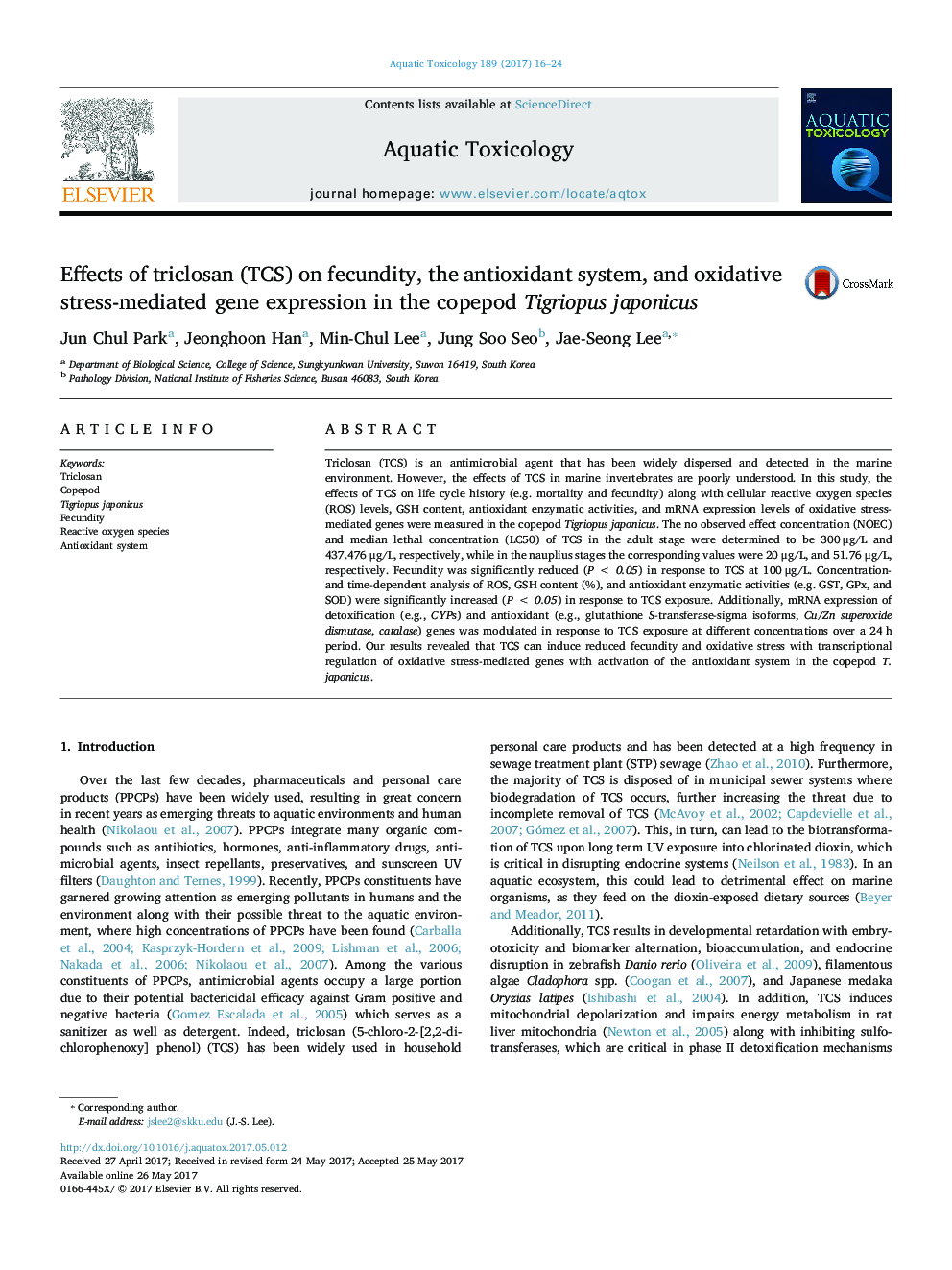| Article ID | Journal | Published Year | Pages | File Type |
|---|---|---|---|---|
| 5764169 | Aquatic Toxicology | 2017 | 9 Pages |
Abstract
Triclosan (TCS) is an antimicrobial agent that has been widely dispersed and detected in the marine environment. However, the effects of TCS in marine invertebrates are poorly understood. In this study, the effects of TCS on life cycle history (e.g. mortality and fecundity) along with cellular reactive oxygen species (ROS) levels, GSH content, antioxidant enzymatic activities, and mRNA expression levels of oxidative stress-mediated genes were measured in the copepod Tigriopus japonicus. The no observed effect concentration (NOEC) and median lethal concentration (LC50) of TCS in the adult stage were determined to be 300 μg/L and 437.476 μg/L, respectively, while in the nauplius stages the corresponding values were 20 μg/L, and 51.76 μg/L, respectively. Fecundity was significantly reduced (P < 0.05) in response to TCS at 100 μg/L. Concentration- and time-dependent analysis of ROS, GSH content (%), and antioxidant enzymatic activities (e.g. GST, GPx, and SOD) were significantly increased (P < 0.05) in response to TCS exposure. Additionally, mRNA expression of detoxification (e.g., CYPs) and antioxidant (e.g., glutathione S-transferase-sigma isoforms, Cu/Zn superoxide dismutase, catalase) genes was modulated in response to TCS exposure at different concentrations over a 24 h period. Our results revealed that TCS can induce reduced fecundity and oxidative stress with transcriptional regulation of oxidative stress-mediated genes with activation of the antioxidant system in the copepod T. japonicus.
Related Topics
Life Sciences
Agricultural and Biological Sciences
Aquatic Science
Authors
Jun Chul Park, Jeonghoon Han, Min-Chul Lee, Jung Soo Seo, Jae-Seong Lee,
